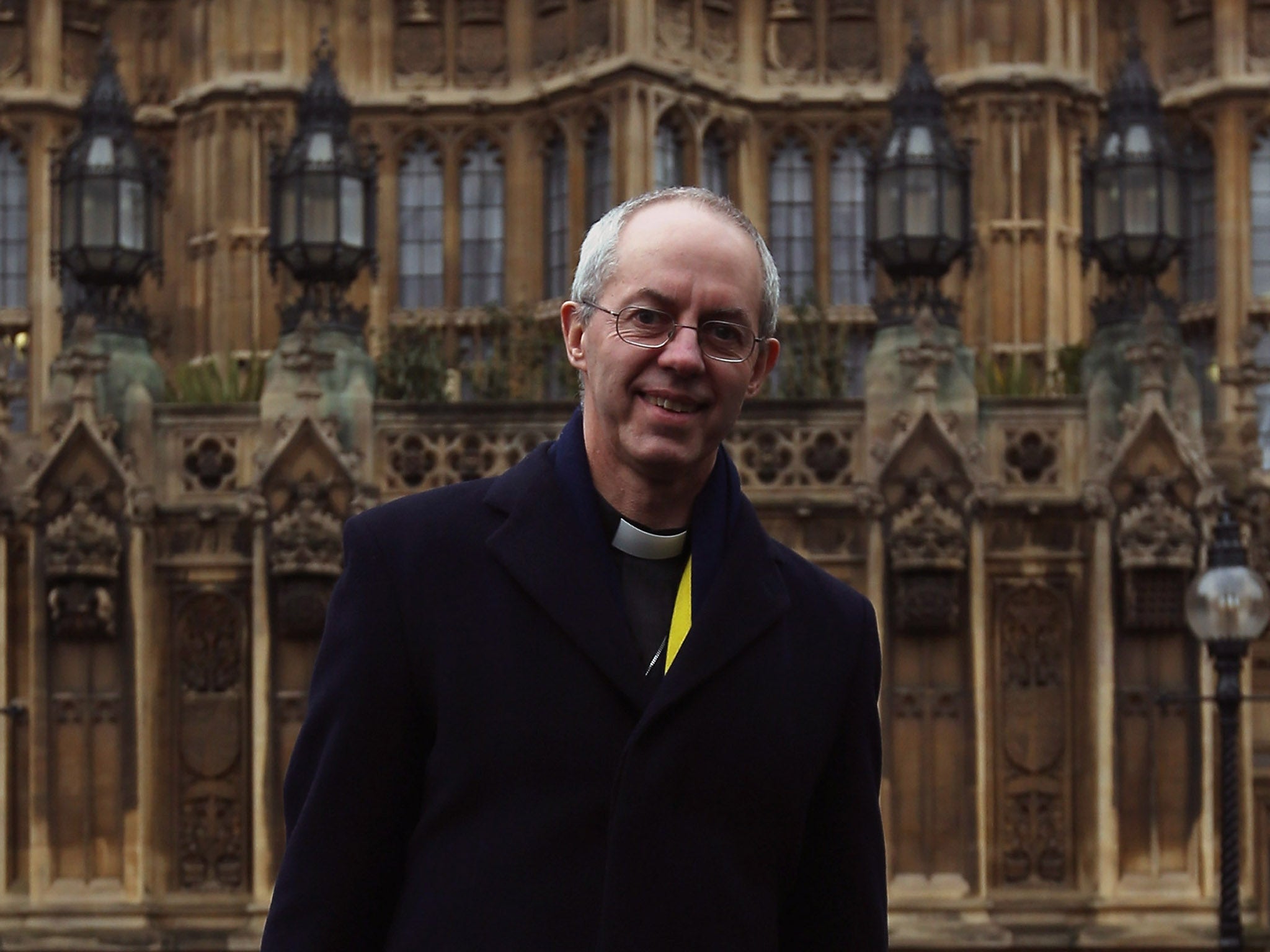Scale of problem debt at 'epidemic levels', says Archbishop of Canterbury
Reverend Justin Welby voices his concerns about energy price hikes and payday lenders

Your support helps us to tell the story
From reproductive rights to climate change to Big Tech, The Independent is on the ground when the story is developing. Whether it's investigating the financials of Elon Musk's pro-Trump PAC or producing our latest documentary, 'The A Word', which shines a light on the American women fighting for reproductive rights, we know how important it is to parse out the facts from the messaging.
At such a critical moment in US history, we need reporters on the ground. Your donation allows us to keep sending journalists to speak to both sides of the story.
The Independent is trusted by Americans across the entire political spectrum. And unlike many other quality news outlets, we choose not to lock Americans out of our reporting and analysis with paywalls. We believe quality journalism should be available to everyone, paid for by those who can afford it.
Your support makes all the difference.The scale of problem debt is at "epidemic levels", the Archbishop of Canterbury has said.
The Most Rev Justin Welby made the comments in the foreword of a report compiled by debt help charity Christians Against Poverty (CAP).
The report said, on average, CAP clients' outstanding debt equates to 96 per cent of annual household income when they seek help.
Mr Welby, the charity's patron, says in the report: "In 2017 we have seen warnings from many of our financial institutions about the scale of consumer borrowing.
"Achieving economic stability together with economic justice for all is too easily overlooked."
He continues: "The scale of problem debt in our country is at epidemic levels.
"Jesus calls us to be hope-bringers and peace-givers. Where there are still lives filled with an oppressive hopelessness, where darkness has a grip, our mission is not done."
In 2013, the archbishop voiced concerns about energy price hikes and he also said in that year that the Church of England wanted to drive payday lenders out of business through the creation of credit unions.
The CAP report said that for people in severe financial hardship, a home may not be a place of refuge but rather a place without food in the cupboard, without heating, hot water or working household essentials.
More than 1,000 CAP clients were asked about life before they got help from the charity.
The research found nearly four in 10 (37 per cent) clients were afraid to leave the home, six in 10 (60 per cent) were afraid to answer the door and nearly three-quarters (73 per cent) were too scared to answer the phone.
CAP also quoted a client who said: "I thought about doing away with my life; I thought about it many times. I was so depressed I didn't want to see anybody.
"I was incapable of repaying the debts I had built up while I was not working so I turned off the heating, stopped eating and was unable to afford essential things like toiletries."
People's financial problems were rarely just about the debt, CAP said.
It said isolation and financial difficulty are often interwoven, meaning that people are unable to afford travel expenses or social events, such as meals with friends.
This, mixed with deteriorating mental health, the pressure felt to repay and visits from enforcement agents, can cause people to become even more cut off.
CAP's chief executive Matt Barlow said: "Debt isn't just a maths problem, it touches every area of life: relationships, health, housing and children's welfare."
Eric Leenders, managing director, personal finance at trade body UK Finance, said the report shows "how more unstable incomes and the rising cost of living have widened the net in terms of people who may be at risk".
Last week, Jonathan Davidson, executive director of supervision - retail and authorisations at the Financial Conduct Authority (FCA), told a conference that credit levels were close to a peak seen in 2008.
He said it was "far from certain" that some customers who could just manage to afford loans now would be able to do so in future.
And he said the FCA would take action against firms whose businesses were based on people being unable to clear their debts.
Meanwhile, Hollywood actor Michael Sheen has founded a new scheme to provide "fairer alternatives" for borrowers to turn to.
The End High Cost Credit Alliance wants to create a social movement to provide alternatives to high-cost credit providers.
PA
Join our commenting forum
Join thought-provoking conversations, follow other Independent readers and see their replies
Comments